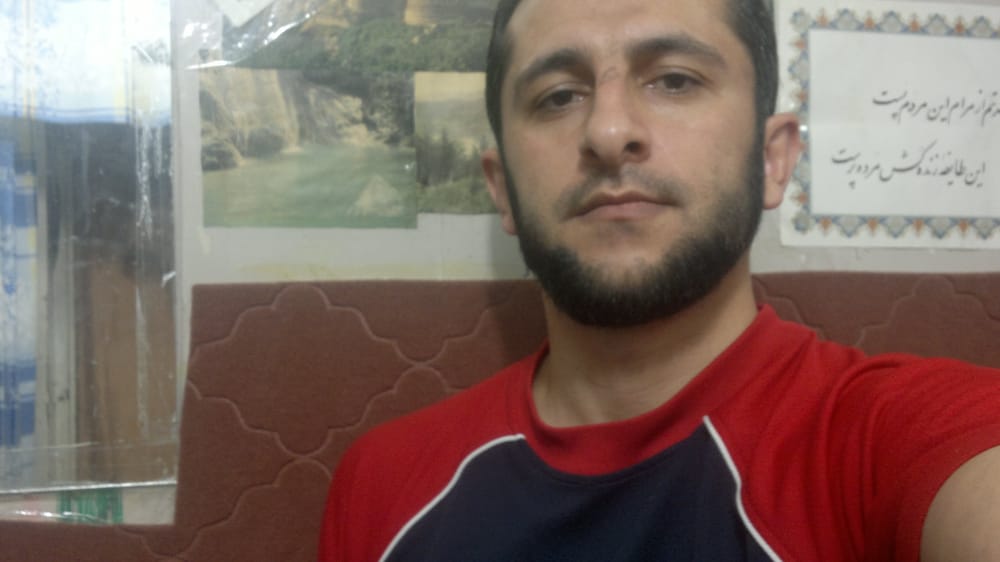Anwar Khezri, Farhad Salimi, Kamran Sheikheh, and Khosrow Basharat, members of Iran’s Kurdish Sunni minority, face a serious threat of execution in Ghezel Hesar prison, Alborz province. This comes amid a concerning increase in executions across the country. Notably, three other Iranian Kurdish men were arbitrarily executed between November 2023 and January 2024 in the same case. All seven men were convicted of “corruption on earth” (efsad-e fel-arz) and received a death sentence following an extremely unfair trial, marked by allegations of torture and mistreatment.
Here’s what you can do:
Write to the Head of Judiciary urging him to:
- Immediately suspend any plans for the execution of Anwar Khezri, Farhad Salimi, Kamran Sheikheh, and Khosrow Basharat.
- Quash their convictions and death sentences.
- Grant the individuals fair retrials conducted in accordance with international fair trial standards. Retrials should strictly prohibit the use of the death penalty and exclude any coerced “confessions.”
- Ensure the safety of Anwar Khezri, Farhad Salimi, Kamran Sheikheh, and Khosrow Basharat from further torture and ill-treatment.
- Initiate thorough investigations into their torture allegations, holding anyone found responsible accountable in fair trials.
- Immediately institute an official moratorium on executions and aim for the eventual abolition of the death penalty.
Write to:
Head of judiciary,
Gholamhossein Mohseni Ejei
c/o Embassy of Iran to the European Union,
Avenue Franklin Roosevelt No. 15,
1050 Bruxelles, Belgium
Salutation: Dear Mr. Gholamhossein Mohseni Ejei,
Testimonies of Torture and Injustice
In February 2020, Anwar Khezri penned an open letter to Ebrahim Raisi, who was the Head of the Judiciary at the time, shedding light on severe human rights violations. These abuses were inflicted by Ministry of Intelligence agents, judges, and prison authorities. Khezri detailed a harrowing 56 days of torture, including beatings to his chest, head, and feet in what he referred to as a “torture chamber” at a Ministry of Intelligence detention facility. Despite a suicide attempt and subsequent blood transfusions, he was returned to prison against medical advice. Forced “confessions” followed, along with a distressing mock execution in August 2017.
Khosrow Basharat faced similar brutality after arrest, enduring beatings, suspension from the ceiling, and exposure to nightmarish sounds for weeks. Farhad Salimi, in his February 2020 open letter, shared experiences of pressure to make forced “confessions” and dismiss his chosen lawyer. Shockingly, no investigations were conducted into these torture claims.
Arbitrary Executions and Increased Death Penalties
Following their arrests, the seven men were initially held separately in a Ministry of Intelligence detention facility in Urumieh before being transferred to prisons in West Azerbaijan province. After over six years in pre-trial detention, they received death sentences in May 2016 for “corruption on earth” and national security offenses. The trial, a mere five-minute affair in March 2016, led to overturned sentences in March 2017 and a retrial in mid-2018. The Supreme Court upheld death sentences on February 3, 2020.

In a separate murder trial in Urumieh in September 2017, Khezri, Sheikheh, and Basharat were transferred. By July 2018, Sheikheh was sentenced to death and 10 years’ imprisonment for murder, while Khezri and Basharat received 10 years for complicity to murder.
The arbitrary executions of Ghasem Abesteh, Ayoub Karimi, and Davoud Abdollahi contribute to a concerning rise in executions by Iranian authorities. In November 2013, at least 115 people were executed, nearly double the number in November 2022. This increase aligns with a heightened use of the death penalty in 2023, disproportionately affecting oppressed minorities, protesters, and dissidents.
Ethnic and religious discrimination
Ethnic minorities, including Kurds, Ahwazi Arabs, Azerbaijani Turks, Baluchis, and Turkmen, face discrimination in education, employment, and political office. Disproportionate death sentences for vague charges, like “corruption on earth,” and secret executions further impact these communities. Religious minorities, such as Sunni Muslims, Baha’is, Christians, Gonabadi Dervishes, Jews, and Yaresan, also endure discrimination, arbitrary detention, unjust prosecutions, torture, and other ill-treatment.
On June 30, 2022, Tehran’s Prosecutor, Ali Salehi, visited Raja’i Shahr prison, where the seven men were held. His statement that “Sunni people don’t deserve the right to life in Iran” prompted 22 Sunni prisoners to go on hunger strike in protest.
Amnesty International vehemently opposes the death penalty, considering it a violation of the right to life and the ultimate cruel, inhuman, and degrading punishment. The organization consistently calls on all states, including Iran, to institute an official moratorium on executions with the goal of completely abolishing the death penalty.
Please take action at your earliest convenience!























